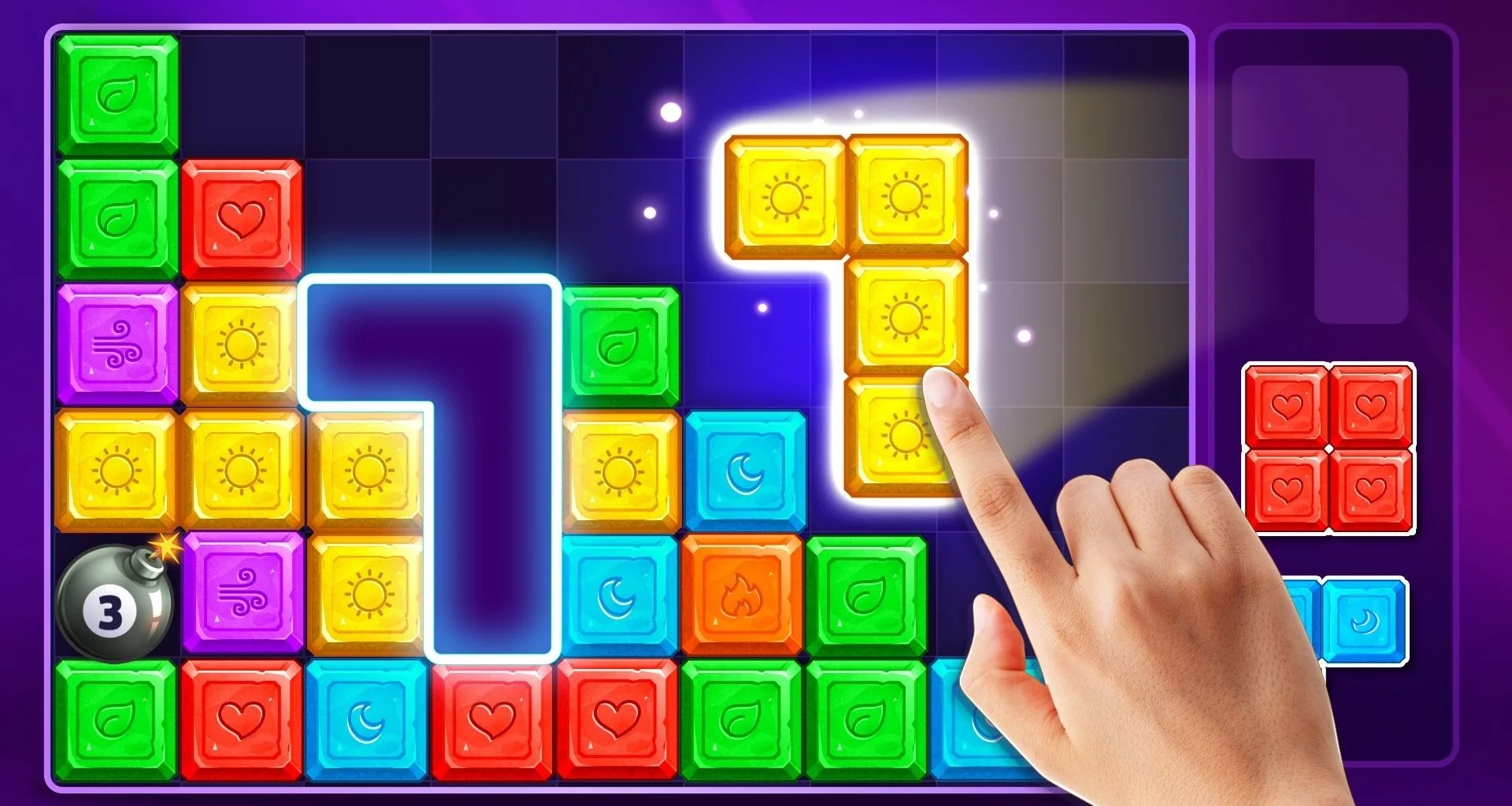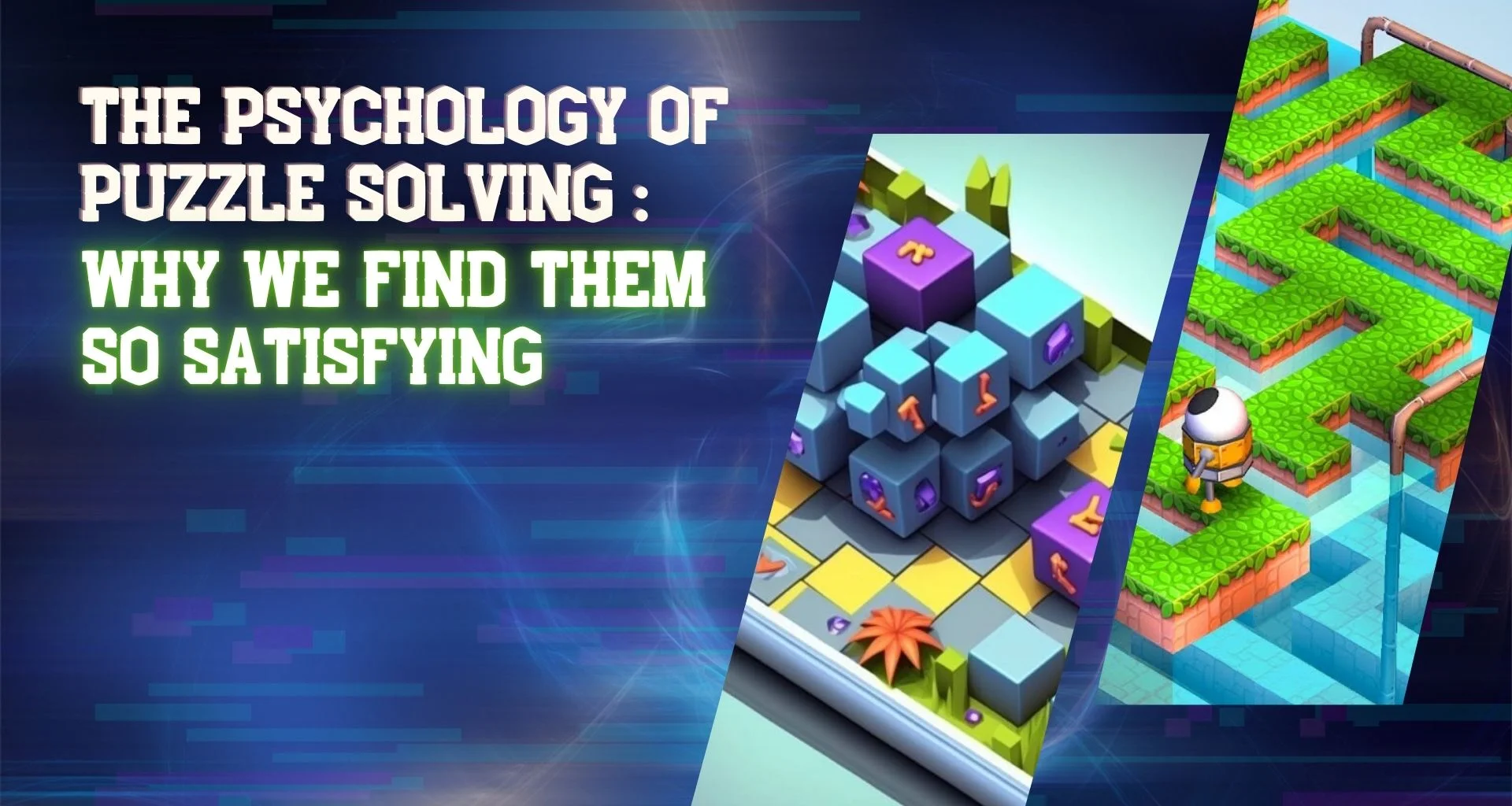Have you ever been caught playing Candy Crush, Sudoku, or Tetris and then unexpectedly found hours have passed? You are not on your alone. From guessing the five-letter phrases in Wordle to working out the correct combinations in Guess the Emoji, puzzles have this special ability to captivate our imaginations. But what precisely about puzzles makes them so wonderfully fulfilling? Let’s explore the psychology of problem-solving and discover what appeals so much about these challenges.
Appreciating the Cognitive Advancement from Puzzles
Over millennia, puzzles have been a favorite leisure time with universal appeal. Puzzles are more than just entertainment whether you are solving environmental mysteries in Portal or sliding vibrant candy in Candy Crush. They challenge your brain in ways that boost cognitive abilities, make you feel successful, and even aid to lower stress.
Cognitive Stimulation
One of the major reasons people are drawn to puzzles is because of the mental workout. Critical thinking, analysis, and the process of finding solutions are being engaged every time you try to solve some tricky level in Portal or find the right sequence in Quordle. The mental workout here means the same for your brain as going to the gym does: it keeps your mind sharp and nippy. The more often you keep solving puzzles regularly, the better at remembering things, solving problems, and having sharp attention you will be. Each time you crack a challenging puzzle, you are not only having fun-you give your brain a powerful workout.
Sense of Satisfaction
Think of the last time you finally finished that hard Sudoku or finally figured out the word in Heardle. That rush of satisfaction that you experienced wasn’t all in your head-your brain was rewarding you for a job well done. The sense of accomplishment you get by solving a difficult puzzle and pride in yourself enhances your self-esteem to take on more significant and challenging puzzles. In that respect, positive reinforcement can cause a snowball effect on other aspects of life where challenges are confidently taken on.
Stress Relief
Puzzles are some of the great methods for calming oneself down. The idea is, when you are deeply into the intricacies of a puzzle, your mind is on vacation from the usual preoccupation and daily worries. All this practice of untangling any complex situation in The Witness, or simply the pushing of boxes around in Sokoban, can help focusing while solving a puzzle to shift anxieties away. This intense focus is a form of meditation, which helps you to relax and get into the challenge at hand.
Dopamine Release
The pleasure of solving a puzzle is no accident. When you solve something-anything from matching candies in Candy Crush to cracking a level in The Legend of Zelda:
It’s the Breath of the Wild-dopamine, basically, is the neurotransmitter for feeling good. It starts releasing in your brain. This kind of chemical reinforces further solving of more puzzles; it also helps in learning and memory. With every Wordle or Guess the Emoji that you clear, your brain keeps rewarding you for such behavior, hence increasing the likelihood of seeking similar challenges at a later point in time.

Popular Puzzle Games That Align with the Psychology of Puzzle Solving
While Sudoku and crossword puzzles are traditional games people have been doing for ages, digital gaming brings a whole new world into view. Here are some of the most popular puzzle games that the psychology of puzzle-solving taps into. The Witness
If you are looking for a game that contains stunning visuals with mind-bending puzzles, then The Witness is what you need. Set on a mysterious island full of environmental puzzles, the game calls for you to explore, observe, and think creatively. Any given puzzle in The Witness serves as an invitation to experiment and think outside the box, thus promoting a great degree of engagement and stimulation at the cognitive level.
Portal
Portal is a classic example of infusing fun and mentally jolting puzzles into one game. Armed with a portal gun, you manipulate the environment to solve a set of increasingly difficult puzzles. The unique mechanisms of this game force you to think spatially and strategically, thus being really satisfying once you finally crack that level which has been giving headache after headache. It is more than a mere game; it is a masterclass in creative problem-solving.
The Legend of Zelda: Breath of the Wild
While Breath of the Wild is widely known for its open-world adventure, the game is highly oriented toward different kinds of puzzles that will task your logic, observation, and even creativity. Whether it is solving shrines or finding a way to pass through some complex dungeon, the game constantly provokes you to be logical and creative in your way of thinking. With the wide-open world at your feet, you have countless ways to test problem-solving skills in your own unique way, making this game highly suitable for those who love solving puzzles with some kind of twist or two.
Baba is You
If you are one of those who enjoy their puzzle games ultra-minimalist and an exercise for the brain, then Baba Is You is the game for you. This innovative game allows you to change the rules of the game in order to solve a puzzle-a really unique experience. Each level will present you with another type of problem that enforces critical thinking and keeps redefining the way you approach it. Nothing compares to the euphoria after finally solving that one tricky level that kept you up for hours in Baba Is You, making it really dear to hardcore puzzle lovers.
Sokoban
A classic never to be out of style, Sokoban is played by pushing boxes in a warehouse for attainment of set goals. Although its game mechanics are no different from those found in any other casual puzzle game, Sokoban can boast really challenging puzzles that require proper planning and foresight. The charm of Sokoban lies in its simplicity and pure pleasure of solving a complex puzzle in as few moves as possible. It’s the excellent example of how even the most simple puzzles can be deeply rewarding.
Why We Keep Coming Back for More
So why do you keep returning to these puzzles-whether it’s a quick game of Wordle during your lunch break or a lengthy session of The Witness on a weekend? The answer comes from an ideal mixture of cognitive stimulation, stress relief, and dopamine-fueled satisfaction that the games provide. Puzzles offer, with only a few activities coming near, an unbeatable combination of challenge and reward. They challenge the mind, build confidence, and take one’s mind away from all those daily hassles. Conclusion Puzzles are not just games; they are a tool for keeping the mind fit, relaxed, and growing. Solving a Sudoku, matching candies in Candy Crush, and navigating the course in Portal-all have more to them than the simple passing of time. You are challenging the brain, fixing in positive habits, and enjoying all of the psychological benefits that come along with solving puzzles. Next time you get lost in a puzzle, remember: it’s not only a game but rather one of the most pleasing and rewarding activities you could ever do with your brain.
Keep Puzzling On! The next challenge is just around the corner, waiting for you to solve it.

